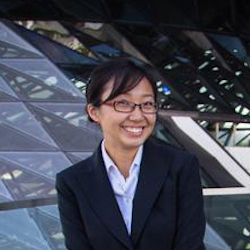
AsianScientist (Nov. 9, 2015) – Well my bags are packed and I’m ready to go…
“I still don’t understand why you want to go.” The voices of friends and family cut through my daydream. “You have a pretty good life here–why would you want to give it up to move to a different part of the world?”
Like many scientists, I have chosen to continue my career in a foreign country. The reasons why so many of us choose to move are varied. Maybe you decided to go somewhere to study. Maybe it’s the chance to work with someone who is THE name in your field or in a place you’ve always dreamed about. Maybe your partner is from a different country and they want to return to the place that they consider ‘home.’ Maybe you broke up with your partner and decided to run away from heartbreak by crossing an ocean (hey, it happens).
Sometimes it can be all of the above–except hopefully not for the breaking up part. This was the case for my friend J. Originally from India, J took up a PhD at the University of Houston, where he met his lovely wife who hailed from Germany.
“It was great being there together, but after a while she felt homesick, so I found a position at the Max-Planck Institute and off we went,” said J.
After years of happily studying and working in my country of origin, the overseas bug bit me while I was at a conference in the US and again while visiting a lab in Europe.
The conversation while seated at the conference dinner–I don’t know if I just struck it lucky and was seated at a table of incredibly vocal scientists. But it was so intriguing, so nuanced and so effervescent as opinions on the various current theories in my field, ground-breaking techniques, international research gossip, and the quality of the food being served were bandied across the table in a variety of sexy accents.
And as I walked around the (surprisingly pristine) lab noting all their European-branded machines and ate the delicious snacks being served, I thought to myself *This is what I want* and my fate was sealed.
In a profession where overseas work is common, there are many ways to work and travel as a scientist. While the most obvious way is to take up a project at a foreign institute or attend international conferences, many countries also have Masters, PhD and Fellowship programs which actively encourage international collaboration.
For example, Australia has biomedical fellowships which require overseas work as part of the award, sometimes with specific locations such as INSERM in France or with institutes in China. M is one of these people. During her PhD, she collaborated on a joint project with a lab in Leuven, Belgium, and enjoyed it so much that she applied for and won and early career fellowship that allowed her to complete a two year postdoc at the same lab.
Additionally, overseas positions can be the next step in career progression. This was the case with D, who excitingly announced one day that he had been accepted for an assistant professorship at a prestigious Ivy League university.
“I’d moved to my current university for a fellowship and had been there for a while and when I saw this position being advertized, I felt that it was time to apply and branch out on my own,” was D’s reply when I’d forwarded my congratulations and asked why he had chosen to take this step. “I wish I got the position at Stanford though–the weather is much better in California.”
So my reply was honest.
“Science is an international discipline. A laboratory in London might be doing the kind of research I am interested. A company in the US could be developing a vaccine that would cure the same disease. A researcher in Tokyo is possibly the one reviewing my manuscript…”
As I continued my spiel, I could see that they all understood. There is nothing wrong with being happy to stay in the in the location you’re in and foreign positions can sometimes be a nightmare. But you can learn a lot from people who work in a different location to what you’re used to, just as you can learn that no matter where you go, some things are the same.
Always remember that just because you’ve chosen to take up a position in a foreign country, doesn’t mean that ticket is one way. After spending many years overseas completing her undergraduate and postgraduate studies followed by a postdoc, Y chose to answer the siren’s call and returned home to Singapore.
“I felt that there was nothing more that I could learn from my postdoc lab, and the Singaporean government is investing a lot in scientific research. The position was available and I realized it was time to go,” said Y.
And with that, it was time to board the plane.
This article is from a monthly column called The Sometimes Serious Scientist. Click here to see the other articles in this series.
———
Source: Asian Scientist Magazine; Photo: Shutterstock.
Disclaimer: This article does not necessarily reflect the views of AsianScientist or its staff.













